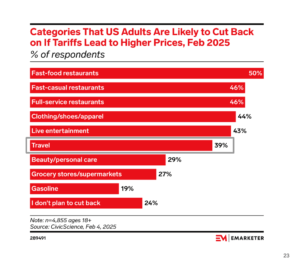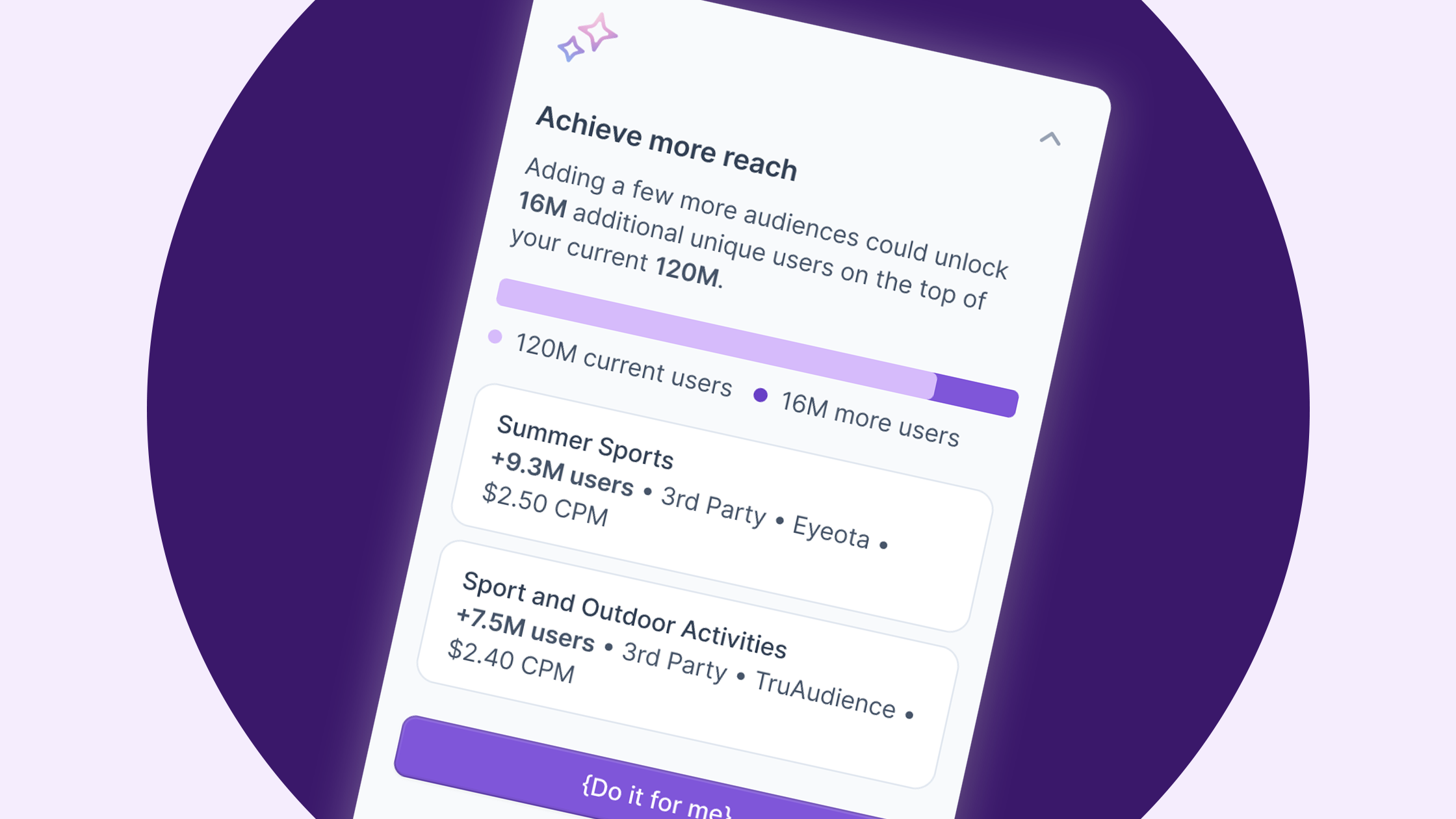The travel industry is taking off, and advertisers looking to get on board need to pay close attention to how travelers spend their hard-earned money if they want to get ahead. While the industry took a pandemic-influenced nose dive in 2020, it is on the fast track to recovery. Here is everything you need to know to take the lead in travel advertising.
(Updated June 2025)
Travel is rebounding
The travel and tourism industry is growing and is projected to continue increasing revenue worldwide in the coming years. Estimates project the industry will grow 3.90% year over year and reach USD$955.9 billion by 2025.
The online travel market is of particular interest, with online travel sales expected to make up 75% of the market by 2029. The US is also the largest travel purchaser, expecting to generate $224 billion in annual revenue by 2025 – 23.4% of the global market.
With the travel industry growing at such a rapid pace, how can advertisers stay ahead of the curve and outsell their competition? By understanding industry trends and customer preferences, as well as implementing strategies to provide travelers with their ideal vacation experience.
Top travel industry trends for 2025
There are several key industry trends to consider going into 2025, but these three trends will have the biggest impact on travel sellers this year.
Authentic experiences
Increasingly, customers are looking for unique and authentic experiences when they travel. Tourists want to avoid the beaten path and see more than the traditional tourist attractions. Boutique hotels and small-group or individual tours are great ways to bring catered experiences to these travelers. Immersive, cultural experiences are the way forward for the tourism industry. While not every advertiser can boast a boutique travel experience, focusing on what unique aspects and perks your destination or accommodation offers go a long way in displaying your authenticity.
Sustainable and ethical travel
Customers are increasingly concerned with sustainable and ethical business practices and the the travel industry is no exception. Travelers are more aware than ever of their choices’ environmental and social impact. As a result, eco-tourism is on the rise. Advertisers should highlight how their brand mitigates environmental impact and appreciates the societal implications of the travel industry.
Affordability and convenience
Budgets are likely to stay tight in 2025. While initially predicted to steadily rise, the looming implementation of tariffs is likely to dampen consumer spending. While that may not stop people from traveling altogether, it will impact where they choose to go and how they choose to get there. This means that for Europeans intra-Europe travel will be the go-to for many tourists this year. For North Americans, travel within the US, Canada, and Mexico will be the most affordable, and therefore the most popular option. In Europe, this also means that budget airlines and rail are going to be the top choice for customers.
Cutbacks on summer travel
eMarketer reports that while not the top priority, travel is a major area in the US adults plan to cut back on if tariffs push prices higher in 2025. Despite the economic pressures, 56% of US adults plan to travel more in 2025 than in 2024, signaling a strong consumer appetite for travel. Furthermore, some airlines such as American Airlines, Southwest Airlines and Alaska Airlines have pulled their full-year forecasts, citing unpredictable travel demand in the wake of tariffs and economic uncertainty.

Lackluster earnings from all three airlines clearly demonstrate that consumers are in no mood to travel, at least in the short term. While the year started off strongly, consumers are now searching for cheaper flights or holding off on travel entirely. With no way of knowing how long this trend will hold, carriers are cutting capacity for the second half of the year, which will help them manage costs.
eMarketer says that weakening demand for air travel is a bad sign for the rest of the industry, especially as the US becomes a less attractive destination for overseas visitors. While carriers noted that premium and international trips remain strong, the weakening dollar and volatile stock market could quickly cause those trends to reverse.
Travel industry advertising in 2025
Advertisers in the travel industry need to take advantage of this growth, meet their customer’s preferences, and stay on top of crucial industry trends. Customer needs and preferences extend beyond the product to marketing and advertising. Messaging, ad placements, and ad creatives all play an important role in drawing in potential travelers.
Here are a few tips and tricks to attract new travelers to your business:
Practice caution with AI
Artificial Intelligence (AI) is growing in popularity among travel advertisers, but many are cautious about its ethical impact and its accuracy. Recent data shows that the majority of destination marketers are already using AI in some way and predict using it more in 2025.
77% of destination marketers anticipate using AI for social or website copy in 2025 and 64% are already using AI in their marketing strategies – including for copywriting and research. However, these impressive numbers are matched by the percentage of marketers hesitant to rely on the technology.
Three-quarters of destination marketers are concerned about data accuracy and over half have concerns about the technology’s ethical implications. Additionally, 74% of respondents are uncomfortable using AI for creatives, including using AI-generated images are videos.
While AI is going to be a part of the future of travel advertising, tread lightly and be cautious about the market impact of relying on unpopular methodologies.
Digital marketing matters
Social media engagement, website traffic, and hotel bookings are all crucial metrics for travel marketers, but website traffic is by far the most important. 91% of destination marketers report that web traffic is a key metric for tracking return on investment (ROI). Moreover, digital continues to outpace traditional channels in the travel industry, claiming a growing share of ad budgets in the US through 2026. This means travel websites must look up-to-date. 2025 might be a good year for brands to consider a website makeover if theirs is looking worse for wear.
Social media is a paradise for organic reach
Social media remains an important marketing tool for destination marketers. In a recent survey, 85% of destination marketers agreed that social media engagement was an important indicator of success.
According to the same survey, Meta and Instagram remain the most important social networks for travel, with 93% of respondents saying that Meta ads were most effective and 90% of respondents prioritizing Instagram Reels for their organic content. This is compared with just 18% of respondents who thought TikTok ads were the most effective use of their time and money. Travel marketers should still prioritize paid and organic social campaigns to keep up with booming industry growth and attract travel-hungry customers.

The travel and tourism industry is growing rapidly. Whether or not this is a temporary boom in response to 2020 and 2021 lockdowns, is hard to say. But travel advertisers need to be strategic to stand out in a world of options for customers struck by the travel bug. Platforms like illumin’s let you build your strategy with critical insights and visual mapping tools so that your campaign journey is as seamless as your customer’s journey. Learn more here.
To see more from illumin, be sure to follow us on X and LinkedIn where we share interesting news and insights from the worlds of ad tech and advertising.











